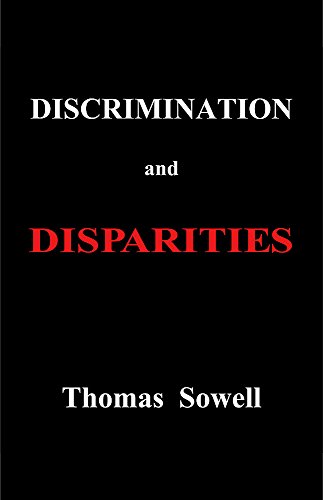About this item
An empirical examination of how economic and other disparities ariseEconomic and other outcomes differ vastly among individuals, groups, and nations. Many explanations have been offered for the differences. Some believe that those with less fortunate outcomes are victims of genetics. Others believe that those who are less fortunate are victims of the more fortunate. Discrimination and Disparities gathers a wide array of empirical evidence from to challenge the idea that different economic outcomes can be explained by any one factor, be it discrimination, exploitation or genetics. It is readable enough for people with no prior knowledge of economics. Yet the empirical evidence with which it backs up its analysis spans the globe and challenges beliefs across the ideological spectrum. The point of Discrimination and Disparities is not to recommend some particular policy "fix" at the end, but to clarify why so many policy fixes have turned out to be counterproductive, and to expose some seemingly invincible fallacies--behind many counterproductive policies.
About the Author
Thomas Sowell
Thomas Sowell is an American economist, social commentator, and author of dozens of books. He often writes from an economically laissez-faire perspective. He is currently a senior fellow of the Hoover Institution at Stanford University. In 1990, he won the Francis Boyer Award, presented by the American Enterprise Institute. In 2002 he was awarded the National Humanities Medal for prolific scholarship melding history, economics, and political science. Sowell was born in North Carolina, where, he recounted in his autobiography, A Personal Odyssey, his encounters with Caucasians were so limited he didn't believe that "yellow" was a hair color. He moved to Harlem, New York City with his mother's sister (whom he believed was his mother) ; his father had died before he was born. Sowell went to Stuyvesant High School, but dropped out at 17 because of financial difficulties and a deteriorating home environment. He worked at various jobs to support himself, including in a machine shop and as a delivery man for Western Union. He applied to enter the Civil Service and was eventually accepted, moving to Washington DC. He was drafted in 1951, during the Korean War, and assigned to the US Marine Corps. Due to prior experience in photography, he worked in a photography unit. After his discharge, Sowell passed the GED examination and enrolled at Howard University. He transfered to Harvard University, where he graduated magna cum laude with a Bachelor of Arts degree in Economics. He received a Master of Arts in Economics from Columbia University, and a Doctor of Philosophy in Economics from the University of Chicago. Sowell initially chose Columbia University because he wanted to study under George Stigler. After arriving at Columbia and learning that Stigler had moved to Chicago, he followed him there.Sowell has taught Economics at Howard University, Cornell University, Brandeis University, and UCLA. Since 1980 he has been a Senior Fellow of the Hoover Institution at Stanford University, where he holds a fellowship named after Rose and Milton Friedman.
More about
Thomas Sowell »
Report incorrect product information.


